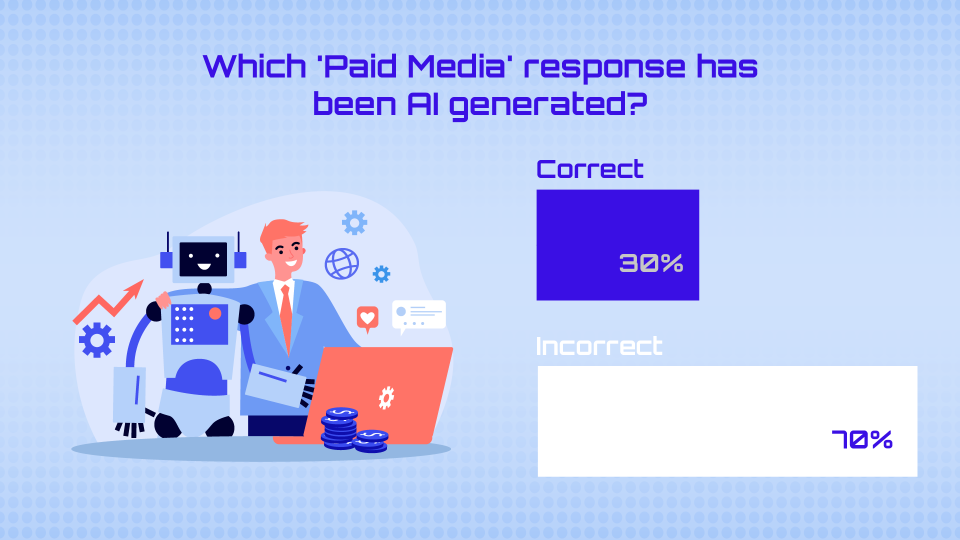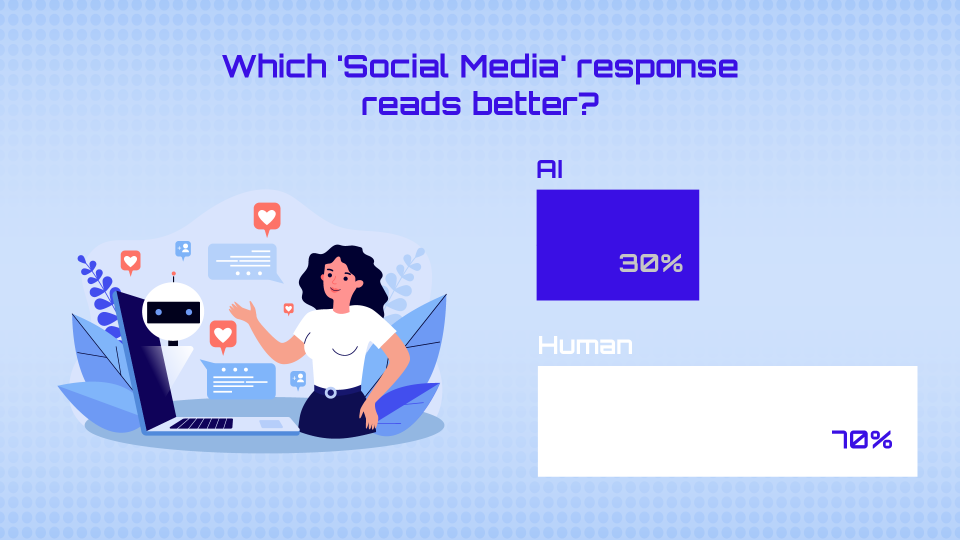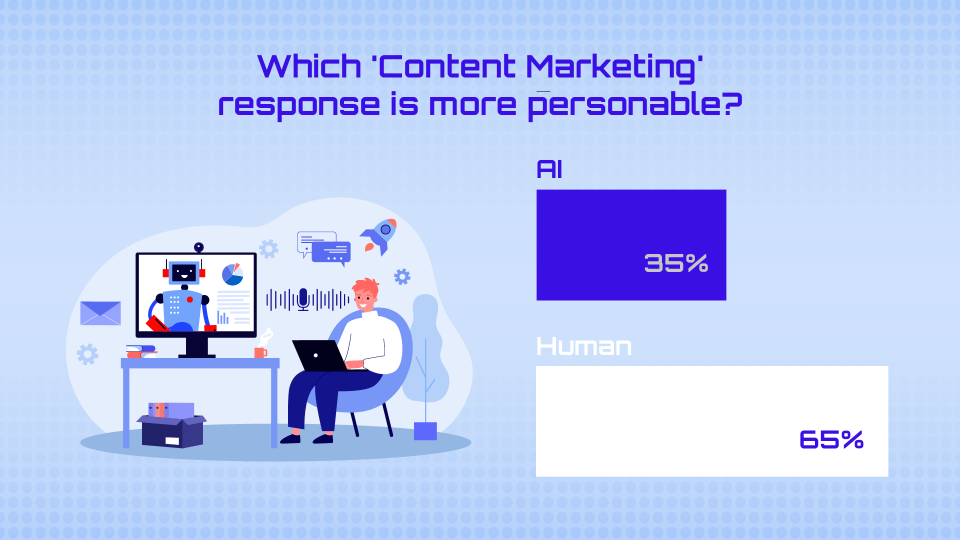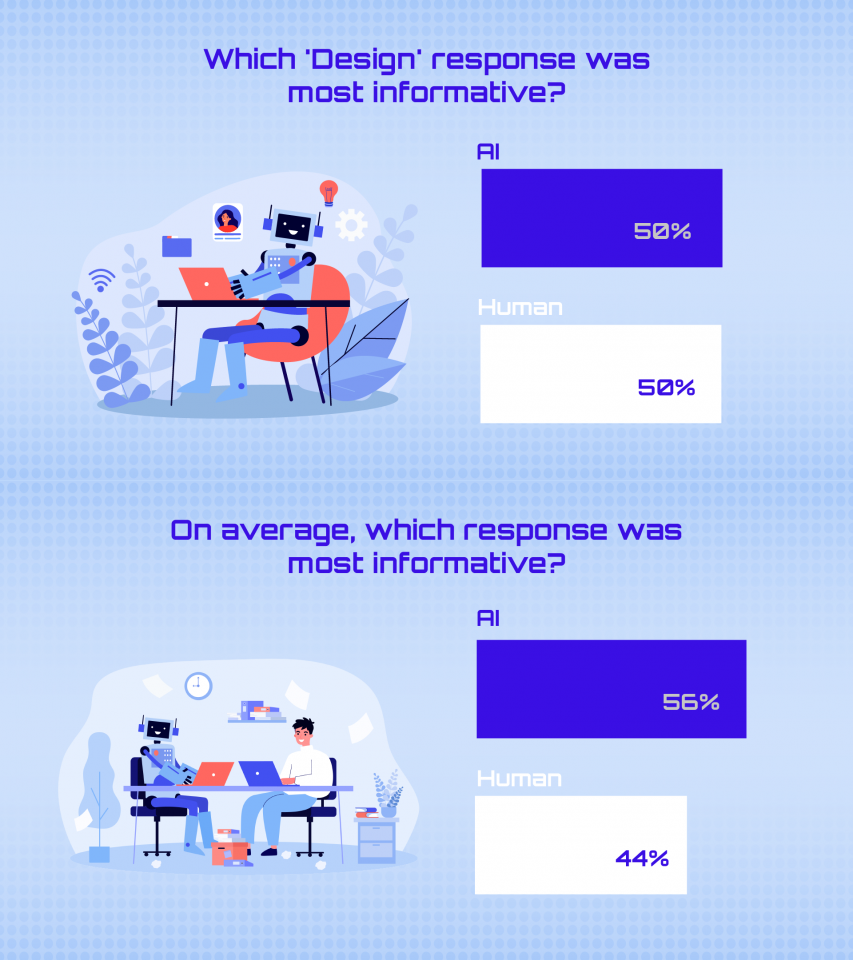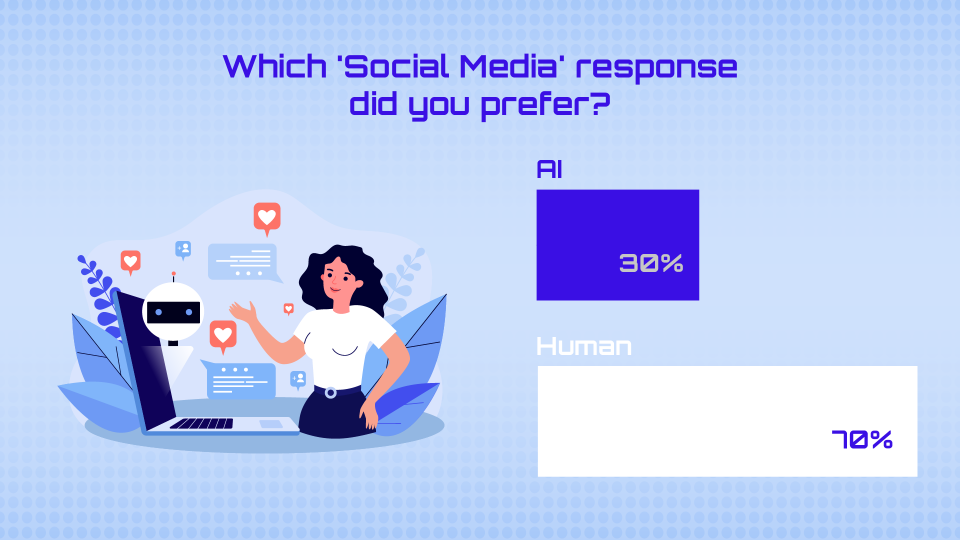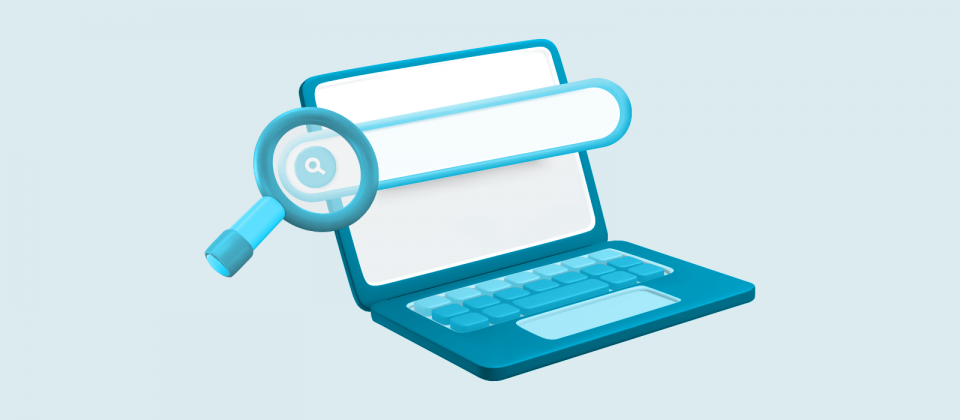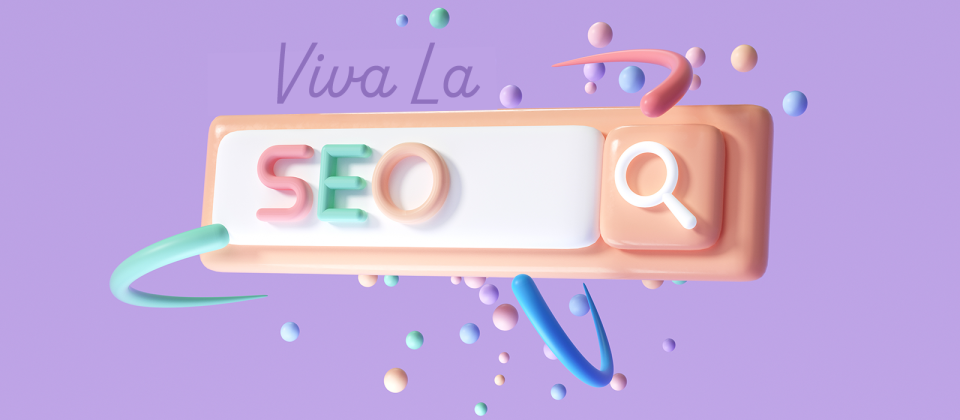
Content
Can you distinguish artificial intelligence from human writers?
Oct 24th, 2023Businesses are constantly seeking out innovative and time-saving solutions to help with everyday tasks. Alongside this, artificial intelligence (AI) systems, such as the language processing tools ChatGPT and Bard, continue to progress apace. AI in its simplest form is a combination of software that can perform various tasks and functionalities that are usually carried out by a human.
As the uses for AI increase, so do the industries that take advantage of it. It’s no surprise then that marketers are noticing the potential benefits of AI as a tool for gathering and presenting information. However, some remain sceptical about the quality and value of this technology.
Here, we discuss the advantages and disadvantages of AI within marketing. We also showcase the findings of a recent survey we completed with industry experts that focused on users’ abilities to differentiate between AI-generated and human-authored content.
The advantages of AI in content marketing creation
When it comes to marketing, AI has the potential to offer various advantages that can develop the way marketers operate day-to-day. One of the biggest benefits of AI is its ability to access vast amounts of data sets and explore different genres and writing styles, aiding in user creativity and originality.
Another way AI can improve the user’s creativity is by suggesting areas in which their ideas can be enhanced or expanded upon. AI-generated content can also assist in predicting customer behaviour. This is due to its ability to continuously learn and improve its predictive analysis accuracy over time.
A further advantage of AI is that it can be used to automate many time-consuming tasks, such as content research or generating title ideas. This allows the user to get on with other important tasks. Indeed, the efficiency of AI is arguably its most useful benefit. AI content can be produced at a faster speed than humans are able to write, allowing a marketer to finish tasks at a much quicker rate. However, the content generated will still need to be reviewed by a human as the text could contain mistakes and inaccuracies.
The disadvantages of AI in content marketing creation
While there are many benefits to using AI, there are several problems that the software still has to overcome.
One issue is potential inaccuracy. AI software often gives facts without citing the sources, and this can get users into difficulties. A recent high-profile example of this involved two New York lawyers who relied on AI to write a legal brief. It transpired that the AI content included fake case citations.
An area that people often overlook when using AI is copyright infringement. Content generated by AI that contains images or data could potentially breach certain copyright laws. This is because AI algorithms often produce their content from large data sets which may include copyrighted information.
Another disadvantage of AI is that it can be complex to use. To get the results you are looking for, you have to use the right prompts. These prompts must be very specific, and at times users have to ask in multiple different ways to get the content they need. This can sometimes make the task take longer than finding and writing the information yourself. As well as this, some AI software might not have all the data available to be able to answer the questions/prompts asked.
Despite these problems, however, AI can still offer certain benefits to marketers.
AI vs. Human - who came out on top?
We recently ran a survey completed with industry experts to gain a better understanding of whether people can differentiate between human and AI-generated content. Users were also asked questions surrounding which of the two responses (human and AI) they preferred. Both the human writer and the AI generator (ChatGPT) were provided with the same prompts to craft five 200-word mini-essays on a variety of marketing topics, such as why SEO is important and what social media marketing is.
Respondents were asked to identify which of the responses were generated by AI. More than six in 10 (63%) correctly identified the AI-written content. This relatively high number could have been due to a number of factors. Respondents may have picked up on certain characteristics that suggested AI involvement, such as repeated phrases or a similar style of writing. As well as this, some participants could have prior experience with AI-generated content and therefore have developed a better intuition for recognising it.
While most respondents guessed the AI-written pieces correctly, one question on the topic of ‘paid media’ seemed to throw many respondents off, with only 30% answering correctly. This could have been due to topic familiarity. Respondents may have been less familiar with this subject matter, making it difficult for them to gauge the difference between both responses. Additionally, the survey order could have influenced responses as users might have thought there was a pattern within the answers.
Our survey also found there was a general consensus that human-written content read better than the AI copy, with nearly three-fifths (57%) of the respondents agreeing with this. Perhaps this is due to the more natural flow of the human-written responses.
The same percentage of people surveyed (57%) agreed that the human-written pieces were more personable. This is perhaps no surprise given that copy generated by humans is widely recognised as being more emotionally expressive.
There was one area where AI showed its potential – and that was in terms of collating facts. Over half of respondents (56%) said they felt the AI responses were more informative. Marketers may therefore be able to successfully harness the potential of AI by using it to assist with the research stage of content creation.
Users were also asked more generally about whether they preferred the AI or the human content. Nearly three-fifths (56%) agreed that they preferred the human-written copy. For two of the essays, 70% of users voted in favour of the human-written responses.
The questionnaire showed that respondents were easily able to correctly identify AI-generated content and seemed to continue to favour the human-written responses. The results help to highlight the strengths and weaknesses of AI-written content.
Final thoughts
It should come as no surprise that AI will naturally filter into people’s work to help them with their daily tasks and develop their creativity. However, in terms of writing content, it still has a long way to go if it wants to compete with human writers. While the software advances, so will its capabilities and it is exciting to see what it will be able to produce in the future.
